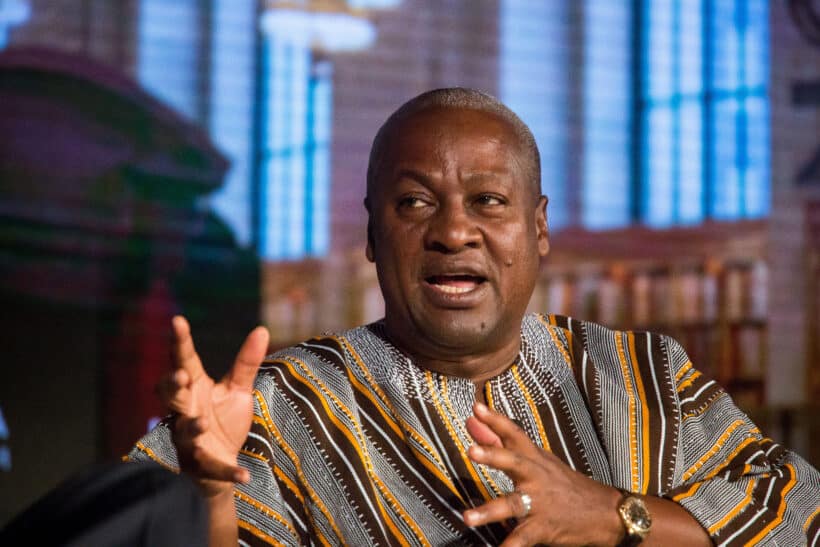
ACCRA, July 31 (Reuters) – Former Ghanaian president John Dramani Mahama will try to renegotiate terms of an International Monetary Fund bailout and boost local ownership of future oil and mining projects if he wins a new term in office in December, he told Reuters.
Mahama, who was in office from 2012-16, will be the main challenger to the ruling party’s candidate, Vice President Mahamadu Bawumia, with a good chance to win given a severe economic crisis that has made the government unpopular.
“I’ve been in an IMF programme before, when I was president, and I know that the IMF is not averse to sitting and talking and renegotiating issues,” Mahama, 65, said in an interview.
Ghana defaulted on most of its $30 billion external debt in 2022 after the effects of years of overstretched borrowing were exacerbated by the COVID-19 pandemic, knock-on impacts of the war in Ukraine, and higher global interest rates.
The oil, gold and cocoa producer secured a $3 billion IMF bailout in May 2023, and in June this year reached separate deals with bilateral and commercial creditors to restructure its debts and freeze repayments until 2025.
The IMF has already disbursed $1.56 billion with another $360 million due by December. But Mahama said he would seek additional IMF funds to help Ghana resume the debt repayments.
He also said he would amend a public finance management law to introduce a compulsory debt-to-GDP ceiling of 60-70% to prevent excessive borrowing.
Further, Mahama said he would respect existing production contracts with oil and mining companies and not seek to raise taxes, but rather aim for higher royalties from future projects.
“I think we are at the upper range of taxes on profit … But I do think that in some cases the level at which we locked in the royalties is low.”
He held out the prospect of higher government stakes in future projects via the Minerals Income and Investment Fund, a sovereign wealth facility.
NORTHERN DUEL
While vice president in 2012, Mahama, of the National Democratic Congress (NDC), became president when John Evans Atta-Mills died in office. Mahama won his own mandate in a presidential election a few months later.
He lost elections in 2016 and 2020 to Nana Akufo-Addo of the New Patriotic Party (NPP), who must step down after this year’s Dec. 7 vote as he will have served the maximum two terms.
As president, Mahama invested heavily in infrastructure but drew criticism over power shortages, macroeconomic instability and allegations of political corruption, though he was not personally tainted. Critics of the NPP say those trends have continued or worsened under Akufo-Addo’s administration.
Mahama and Bawumia are both from northern Ghana, where the NDC was dominant for many years but the NPP has been making inroads.
“We the youth are hopeless, we don’t have jobs. How to eat, pay bills and feed our families is very hard,” Abdul-Wakil Neindow, 30, who lost his construction job in 2017 and has yet to find work, said at Mahama’s campaign launch at the weekend.
Ghana is one of Africa’s most stable democracies, with a history of peaceful transfers of power. No party has ever won more than two consecutive terms in government.
However, the last election was marred by opposition accusations that the government used the advantages of office to unfairly influence the outcome, which it denied.
Mahama urged supporters at his campaign launch to stay awake for 48 hours after voting to guard against any vote-rigging.
($1 = 15.4500 Ghanaian cedi)
(Writing by Portia Crowe; Editing by Estelle Shirbon and Mark Heinrich)

